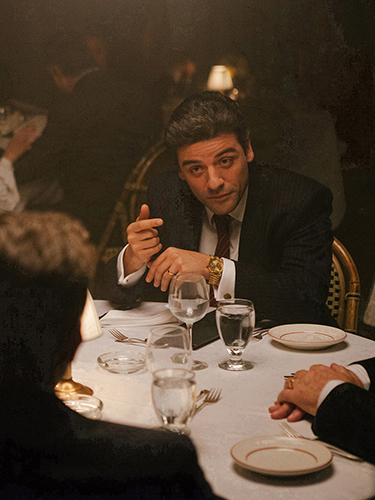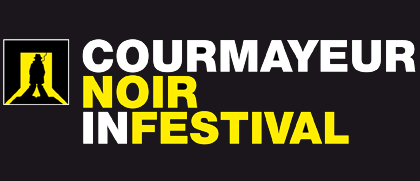EDITORIALS
NEWS
PROGRAM
FILMS
Competition
Out of Competiton
Special Events
Crime TV
BOOKS
EVENTS
CHANDLER AWARDS
GALLERY
NEWS
PROGRAM
FILMS
Competition
Out of Competiton
Special Events
Crime TV
BOOKS
EVENTS
CHANDLER AWARDS
GALLERY
A Most Violent Year
United States, 2014, 125’, color
screenplay
cast
producers
world sales
New York, 1981. Abel Morales, an ambitious immigrant, tries to expand his oil sales company business during the most crime-ridden years in New York City’s history. He gets his chance when he purchases a fuel oil terminal on the East River, but an investigation and a series of thefts of his trucks threaten to destroy everything he has worked for. Abel and his wife, Anna, have to struggle against a rising tide of violence, corruption and decadence to make their American dream come true.
PHOTOGALLERY HIGH RES
United States, 2014, 125’, color
screenplay
J. C. Chandor
cinematography
Bradford Young
editing
Ron Patane
music
Alex Ebert
sound
Steve Boedekker
production design
John P. Goldsmith
costumes
Kasia Walicka-Maimone
cast
Jessica Chastain [Anna Morales]
Oscar Isaac [Abel Morales]
Christopher Abbott [Louis Servidio]
David Oyelowo [Lawrence]
Alessandro Nivola [Peter Forente]
Albert Brooks [Andrew Walsh]
Elyes Gabel [Julian]
Catalina Sandino Moreno [Luisa]
Ashley Williams [Lange]
Glenn Fleshler [Arnold Klein]
Jerry Adler [Josef]
Daisy Tahan [Annie Morales]
producers
J. C. Chandor
Neal Dodson
Neal Dodson
Anna Gerb
productions
Before The Door Pictures
Old Bull Pictures
Old Bull Pictures
Washington Square Films
FilmNation Entertainment
Participant Media
Imagenation Abu Dhabi FZ
world sales
FilmNation Entertainment
Ph. +1 917 484 8900
info@filmnation.com
www.filmnation.com
New York, 1981. Abel Morales, an ambitious immigrant, tries to expand his oil sales company business during the most crime-ridden years in New York City’s history. He gets his chance when he purchases a fuel oil terminal on the East River, but an investigation and a series of thefts of his trucks threaten to destroy everything he has worked for. Abel and his wife, Anna, have to struggle against a rising tide of violence, corruption and decadence to make their American dream come true.
"This movie’s obviously structured like an old 1930s gangster film. You’ve got the femme fatale sort of brushing her hair in the opening scene and the Jewish money lender. I’m hitting these sort of sign posts that are almost genre elements, but my hope is that the film is doing something that’s very different, that it still is giving you the thrills and the highs and the lows, but it’s actually about something that is really a dissection of our relationship with violence and its escalation." [J. C. Chandor]
J. C. Chandor grew up near New York and in London. Married to the painter Mary Cameron Goodyear, he attended film courses in film studies in Ohio and at NYU. Along with television documentaries and countless commercials; his credits include a six-part concert film series featuring Sting, Elton John, The Red Hot Chili Peppers, and Beck; and the three-part documentary series In Pills We Trust (2002) for Discovery Europe. Chandor made his directorial debut in 2004 with the short Despacito, before directing the feature film Margin Call, which was nominated for an Oscar® for Best Original Screenplay and competed at Courmayeur in 2011. Two years later he made All is Lost, a film that won Alex Ebert a Golden Globe for Best Original Score. Among the numerous prizes received by A Most Violent Year in 2015, the film earned Jessica Chastain a Golden Globe nomination in the best supporting actress category.
2014 A Most Violent Year
2013 All Is Lost
2011 Margin Call
2004 Despacito [short]
PHOTOGALLERY HIGH RES
 |
|
|
PROGRAM
09/12/2015 h 21:00: PalaNoir 1
|

